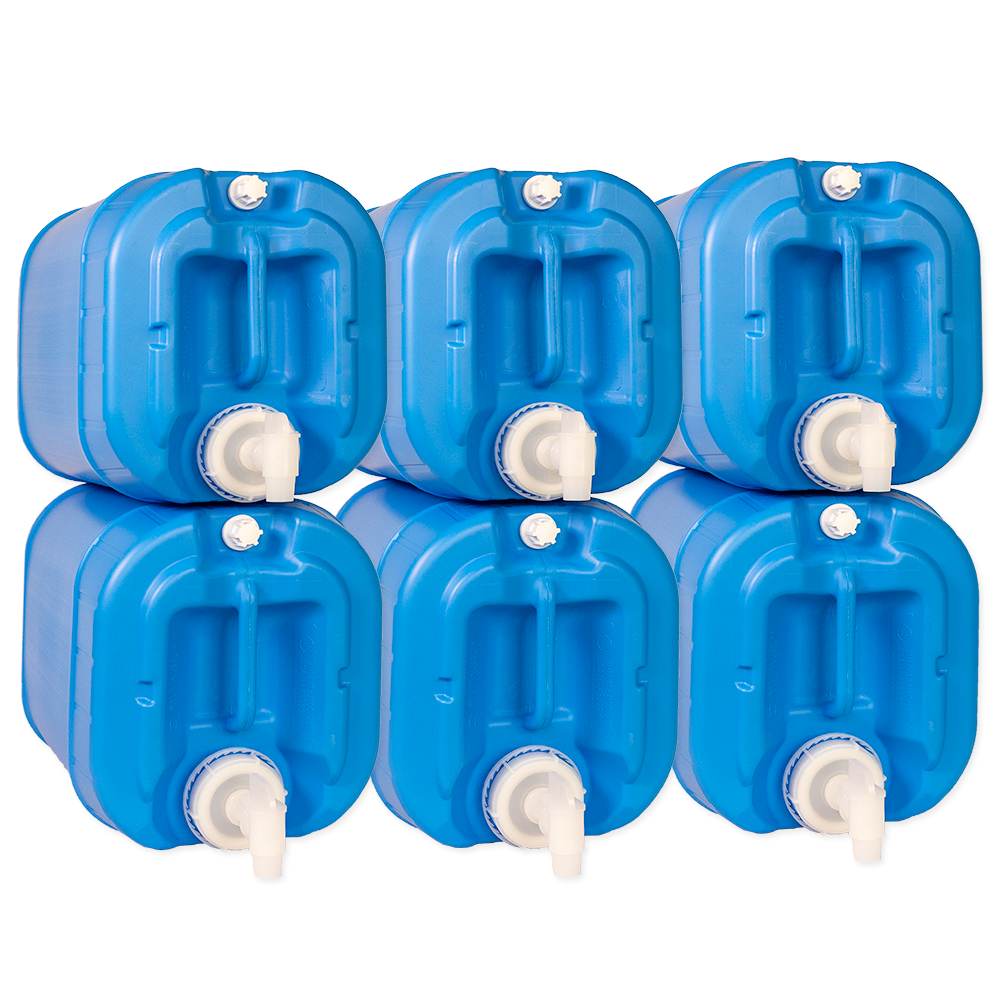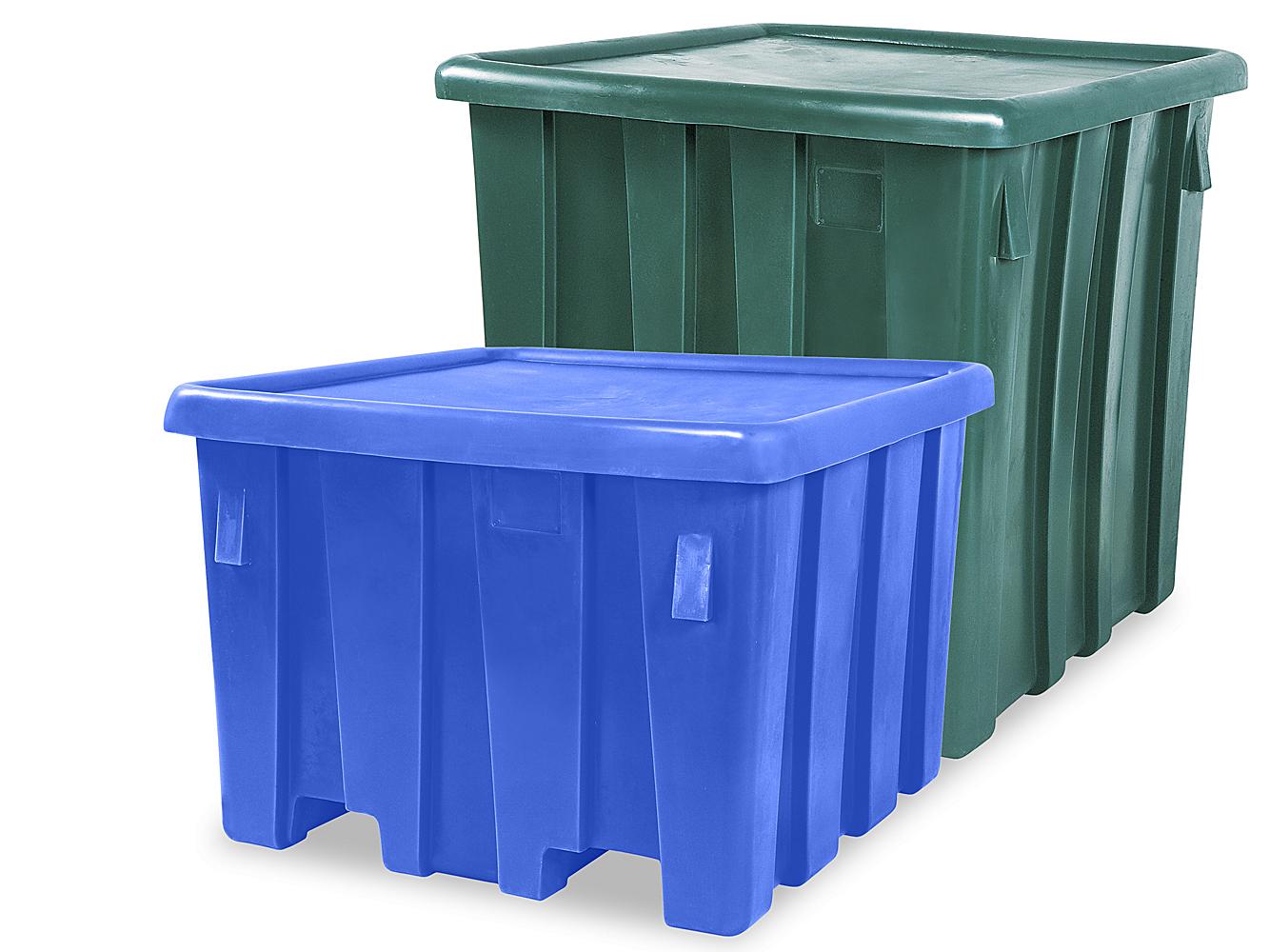How Bulk Plastic Containers can simplify your inventory management system
Wiki Article
A Comprehensive Guide to the Different Sorts Of Mass Plastic Containers Available Today
Mass plastic containers play an important duty in various sectors, offering remedies for storage space and transport. Their varied types deal with various needs, from rigid choices for solid materials to versatile containers fitting various forms. Each kind offers unique benefits, making it necessary to comprehend their applications and attributes. As sectors advance, so do the needs for efficient container options. What factors should one consider when choosing the appropriate bulk container?Summary of Bulk Plastic Containers

Sorts Of Bulk Plastic Containers
Mass plastic containers come in different kinds, each matched to specific applications. Inflexible mass containers, adaptable mass containers, and intermediate bulk containers stand for the key classifications, each offering distinct advantages. Recognizing these types is necessary for picking the right container for carrying and saving materials.
Rigid Bulk Containers
Stiff bulk containers are critical for reliable storage and transport of different materials throughout sectors. These containers are usually created from sturdy plastics, permitting them to withstand harsh handling and environmental problems. They can be found in various forms and dimensions, consisting of totes, drums, and bins, making them appropriate for saving every little thing from granular materials to liquids. Stiff containers often include strengthened walls and protected lids, making certain the contents remain secured throughout transit. Their stackable layout maximizes storage space, making them optimal for stockrooms and making facilities. Furthermore, many inflexible bulk containers are multiple-use and recyclable, adding to sustainability initiatives. In general, their effectiveness and flexibility make stiff bulk containers an important element in supply chain operations.Adaptable Bulk Containers
Flexible bulk containers, often described as flexible intermediate bulk containers (FIBCs), work as a flexible remedy for keeping a range and transporting of dry products. These containers are usually made from woven polypropylene and are created to be lightweight yet solid, enabling for efficient handling and piling. Their adaptability allows them to fit various sizes and shapes, making them ideal for items varying from grains to chemicals. FIBCs can be equipped with attributes such as spouts for easy filling and discharge, as well as safety coverings for boosted resilience. Additionally, they are recyclable and recyclable, adding to lasting practices in markets like agriculture, food handling, and building and construction. On the whole, adaptable bulk containers offer a affordable and efficient option for mass product monitoring.Intermediate Bulk Containers
Intermediate bulk containers (IBCs) are vital for the efficient transportation and storage of liquids and granular products across different sectors. These containers generally have a capability ranging from 275 to 330 gallons and are designed for very easy taking care of and stacking. Made from durable materials like high-density polyethylene or steel, IBCs provide outstanding protection against contamination and environmental variables. Their layout consists of attributes such as a built-in pallet for forklift accessibility and a detachable top for easy dental filling and cleaning. IBCs are commonly used in chemical, food, and pharmaceutical sectors, guaranteeing conformity with safety and security guidelines. Their versatility and reusability make them a cost-efficient solution for mass storage and transport, adding to provide chain efficiency and sustainability.Attributes and Advantages of Bulk Plastic Containers
Mass plastic containers are crucial devices in different sectors, using a combination of longevity and usefulness. These containers are constructed from top quality materials, making them immune to effects, chemicals, and ecological factors. This effectiveness guarantees product safety throughout storage space and transportation.In addition, bulk plastic containers are lightweight, helping with ease of minimizing and handling delivery costs. Their stackable layout makes the most of storage space efficiency, enabling optimized warehouse room. Lots of versions include safe and secure covers or closures, giving a closed seal that protects contents and protects against contamination.
Mass plastic containers are frequently multiple-use and recyclable, contributing to lasting techniques. Their flexibility enables for a variety of applications, from food storage space to commercial use, boosting their value across markets. Services take advantage of the lengthy life expectancy and low maintenance needs of these containers, making them a cost-efficient option for both temporary and long-term requirements.
Industries That Use Mass Plastic Containers
Various industries take advantage of using mass plastic containers, each leveraging their special residential properties for particular applications. The food and drink sector relies upon these containers for secure storage space and transportation of items, while the chemical manufacturing industry utilizes them for handling harmful materials. Additionally, the pharmaceutical circulation needs stress the value of durability and cleanliness in packaging remedies.Food and Drink Sector
As the need for efficient and safe storage services continues to increase, the food and drink sector like this significantly relies upon bulk plastic containers for their operational requirements. These containers give durable, light-weight, and versatile choices for keeping components, ended up items, and waste materials. Made from food-grade materials, they ensure conformity with wellness and security standards. Numerous designs, such as stackable containers and tote boxes, maximize space during transportation and storage space, boosting logistical effectiveness. Additionally, the transparency of some mass containers enables for easy inventory administration, reducing the threat of perishing. With the market's concentrate on sustainability, lots of suppliers are currently providing recyclable and recyclable choices, lining up with green methods while meeting the high needs of food security and hygiene.
Chemical Production Market
The chemical manufacturing market depends greatly on mass plastic containers for the secure and efficient storage of raw materials, intermediates, and completed products. These containers are made to hold up against numerous chemicals, guaranteeing that hazardous materials do not leakage or deteriorate the container itself. Usual kinds consist of high-density polyethylene (HDPE) and polypropylene containers, which provide superb chemical resistance and sturdiness. Their lightweight nature and stackable style promote transportation and storage, maximizing area in manufacturing facilities. Furthermore, lots of mass plastic containers feature functions such as tamper-evident seals and easy-to-read labeling, improving security and compliance with sector laws. In general, mass plastic containers are important to the chemical manufacturing procedure, supplying reputable solutions for handling varied materials.Drug Distribution Requirements
Drug circulation relies upon bulk plastic containers to satisfy rigorous safety and governing requirements. These containers are important for saving a variety and transporting of pharmaceutical products, consisting of energetic pharmaceutical components (APIs) and ended up medicines. Their design guarantees defense against light, wetness, and contamination, keeping the honesty of sensitive products. Additionally, mass plastic containers are compliant with market requirements such as Excellent Manufacturing Practices (GMP) and are commonly made from materials that are FDA-approved. The use of these containers improves performance in the supply chain, permitting safe, massive circulation while reducing waste. Business in the pharmaceutical sector focus on using long lasting, watertight, and tamper-evident containers to assure item security and high quality throughout the logistics procedure.Considerations for Selecting the Right Container
When selecting the ideal bulk plastic container, different variables have to be meticulously evaluated to ensure excellent performance and safety. The nature of the products to be kept is extremely important; compatibility with the container's product can influence integrity and safety and security. Bulk Plastic Containers. In addition, the container's dimension and shape must straighten with the storage space and transport needs, ensuring reliable room usageLoad capability is another crucial factor to consider, as it ought to accommodate the weight of components without threat of damages or failure. The style attributes, such as venting or lids, can affect usability and gain access plastic bulk containers to. Compliance with market guidelines is essential, especially in sectors like pharmaceuticals, where safety criteria are stringent.
The expected life-span and sturdiness of the container should be analyzed to validate it meets the functional needs without constant replacement. By reviewing these factors, one can pick one of the most appropriate bulk plastic container for specific applications.
Environmental Influence and Sustainability
As companies progressively prioritize sustainability, the ecological effect of mass plastic containers has actually come under analysis. These containers, frequently made from materials such as polyethylene or polypropylene, add significantly to plastic waste if not taken care of properly. Their manufacturing involves the consumption of nonrenewable fuel sources, which can result in enhanced greenhouse gas emissions. Improvements in recycling innovation and the development of biodegradable alternatives are assisting to minimize these worries.In addition, many makers are taking on techniques that stress using recycled materials, consequently minimizing the demand for virgin plastics. The sturdiness of bulk plastic containers likewise contributes; they are developed to be reused multiple times, which can lessen their total environmental footprint when contrasted to single-use alternatives. Ultimately, the industry faces the difficulty of balancing capability with ecological responsibility, making sustainable methods vital for the future of bulk plastic containers.
Best Practices for Storage and Transport
Reliable storage and transportation of mass plastic containers substantially affect both operational efficiency and sustainability. To take full advantage of area, companies must stack containers firmly, ensuring security and avoiding damage. Appropriate labeling is essential for very easy identification, which simplifies access processes. Additionally, keeping a clean and organized storage area lowers the danger of contamination and enhances safety and security.For transport, picking the best lorry is vital; containers ought to be protected to stay clear of changing throughout transit. Companies ought to likewise take into consideration making use of pallets to help with much easier loading and unloading. Regular examinations of containers for damage can avoid expensive replacements.
Temperature level control is an additional crucial aspect, as severe conditions can jeopardize the honesty of continue reading this the plastic. Finally, training employees on best methods for taking care of and transport guarantees compliance and advertises a society of safety. By applying these best practices, services can improve their operational effectiveness while adding to ecological sustainability.
Frequently Asked Concerns
Exactly how Do I Clean Bulk Plastic Containers Effectively?
To tidy bulk plastic containers properly, one must wash them with warm water, use a light detergent and scrub with a soft brush. Wash thoroughly, then enable to air dry entirely before storage or reuse.What Is the Lifespan of Bulk Plastic Containers?
The lifespan of bulk plastic containers commonly ranges from 5 to 10 years, relying on the material, use, and environmental conditions. Proper upkeep and storage can greatly expand their usability and sturdiness with time.Can Bulk Plastic Containers Be Customized?

Do Bulk Plastic Containers Have Service Warranty Options?

Are There Regulations for Using Bulk Plastic Containers?
Yes, laws exist for utilizing bulk plastic containers, largely concentrated on safety, ecological impact, and material compliance. These guidelines assure that containers fulfill sector requirements and are suitable for moving various substances safely and efficiently.Inflexible bulk containers, flexible mass containers, and intermediate mass containers represent the primary groups, each offering unique advantages. Adaptable mass containers, frequently referred to as adaptable intermediate bulk containers (FIBCs), serve as a functional service for moving and storing a range of completely dry materials. The chemical manufacturing sector depends heavily on bulk plastic containers for the effective and risk-free storage space of raw products, intermediates, and finished items. Bulk Plastic Containers. These containers are designed to stand up to numerous chemicals, making certain that harmful products do not leakage or degrade the container itself. Furthermore, bulk plastic containers are certified with sector standards such as Good Manufacturing Practices (GMP) and are commonly made from products that are FDA-approved
Report this wiki page